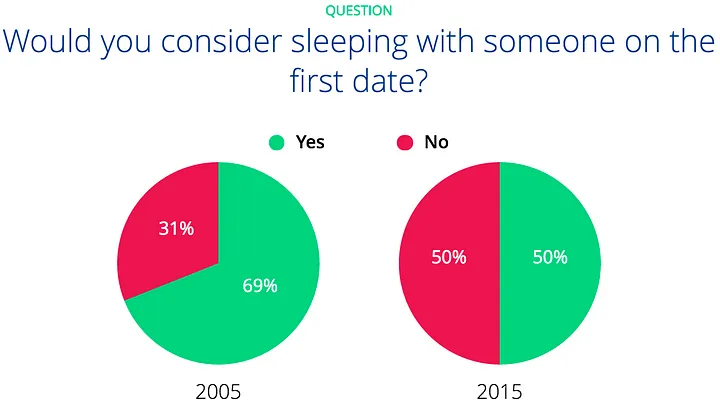Your Pregnancy Help Organization and COVID-19
If you are a Heartbeat Affiliate, please click log in at the top of the page to view more materials! Additional materials will appear below for those current affiliates who are already logged in. Click here for more information about affiliating with Heartbeat International.
You can also get a recording of our webinar series Coronavirus and Your Pregnancy Help Organization for free by clicking here. Resources related to those webinars are also available on the Complimentary Materials page here.
The information in these articles is accurate as of the publication date of each one. We are working to keep our articles up-to-date as changes surrounding COVID-19 occur, and we encourage everyone to check the CDC, WHO and their local authorities as the situation is ever-evolving.
Displaying items by tag: Joe Malone
Romance Revolt
 by Dr. Joe Malone, PhD, CFE, LWMC, CPT
by Dr. Joe Malone, PhD, CFE, LWMC, CPT
Women often express to me that they like it when a man displays chivalry toward them. They like to be treated like a lady. (This is why Jane Austen’s books and Hallmark movies are so popular with women!) Women have an innate longing for traditional courtship, traditional marriage, and traditional family. In other words, they want the kind of life that, in many cases, their great-grandparents and grandparents had. A life of fulfillment in a committed relationship for a lifetime. They want to get back to romance. That’s why I believe there is a “romance revolt” taking shape across Western societies.
What is the foundation of this? Well, I believe it starts with the beginning of human history. From the very start, God made human females to be a "one man woman."
“Your desire will be for your husband...” Genesis 3:16 CSB
Currently, we seem to be in a season where there is a relational revolt happening all over the Western world. I call it a “Romance Revolt.” Women are beginning to demand the return of romance and respect between the sexes.
A Lesson From History
It is common for many people living in the 21st century, who are largely unaware of history – especially the history of sexuality – to think that the natural course of things is for cultural conditions to become more and more sexualized as time goes on. However, it should give us great hope to know that in fact, history is not linear but cyclical in its nature; we have gone from periods of sexual integrity to sexual anarchy and back several times in the last several centuries.
The pendulum swinging back and forth has been the actual course of history.
“What has been will be again, what has been done will be done again; there is nothing new under the sun.” Ecclesiastes 1:9 NIV
For over a thousand years, from the beginning of the Middle Ages to the 1600s, there was more and more sexual integrity practiced by society. That started to change from about 1660 to approximately 1800, with more and more sexual anarchy being practiced during the period of what is ironically called “The Enlightenment.” From approximately 1800 until 1920, there was a return to predominant sexual integrity in what is called the “Victorian era.” From 1920 into the 21st century, we have experienced more and more sexual anarchy. But I believe that the pendulum is beginning to swing back to sexual integrity.
We must recognize that history goes in cycles and is not a linear straight line going from more sexual integrity in the past to less sexual integrity and more sexual anarchy as time has gone on. There’ve been times of sexualization in society and then times of greater sexual integrity in response to the harm that the culture has experienced because of sexual anarchy. I believe, and the studies show, that we are at the beginning of one of those times.
Studies Show…
This seems to have started to take shape as early as 2015 when the dating app, OkCupid, shared its new survey research data.
 In 2005, OkCupid had begun asking questions like “Would you consider sleeping with someone on the first date?” In contrast to 2005, in 2015 every single demographic group was more likely to say “no.” Heterosexual women were the statistical leaders with 25% being less likely to say “yes.” When they were asked, “Would you date someone just for sex?” again, every single demographic group said “no” more than in 2005. There was an overall drop of 10% in 10 years. (Kelly Cooper, 2021)
In 2005, OkCupid had begun asking questions like “Would you consider sleeping with someone on the first date?” In contrast to 2005, in 2015 every single demographic group was more likely to say “no.” Heterosexual women were the statistical leaders with 25% being less likely to say “yes.” When they were asked, “Would you date someone just for sex?” again, every single demographic group said “no” more than in 2005. There was an overall drop of 10% in 10 years. (Kelly Cooper, 2021)
More evidence that agrees with this trend is a large U.S. national research study of over 3,000 young adults and high school students that was released in 2017 by Harvard University. It found that a large majority of young adults are overestimating how many other young people are hooking up. This study also showed that 85% of young adults would prefer other options over hooking up, such as hanging out with friends or having sex only within a committed relationship. (Weissbourd et al., 2017)
Back To Romance!
What do women really want? Their God-given, innate nature compels them to want to get back to romance! From both my personal experience and extensive research I have found that a large majority of women want to return to a world where there is commonly a relationship of love and respect between men and women. This entails returning to a culture where sex is reserved for its proper place: within a meaningful marriage full of true love and romance!
I will leave you with this to support that perspective. I conducted 21 qualitative interviews with single, post-college women. There were 12 questions asked altogether. The following is an excerpt of an answer to a question about hookup culture versus romance and attitude toward chivalry:
“I want to be treated like a lady. I want to be spoiled. All the doors opened, chairs pulled out, escort me down the sidewalk. The whole nine. My grandfather wrote my grandmother’s name in the sand while he was in the army, took a picture with her name and sent it back to the United States with his letter.”
For more perspective on this, I invite you to join me for a recently recorded conversation with Lora Current. Watch it here!
________________________________________________________________________________________________
Sources
2. Weissbourd, R., Anderson, T., Cashin, A., & Mcintyre, J. (2017). The Talk: How Adults Can Promote Young People’s Healthy Relationships and Prevent Misogyny and Sexual Harassment. In Making Caring Common (p. 6). https://mcc.gse.harvard.edu/s/mcc_the_talk_final.pdf

